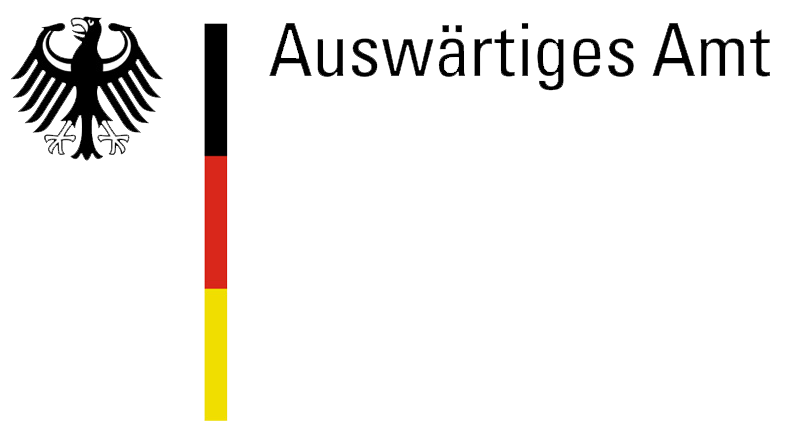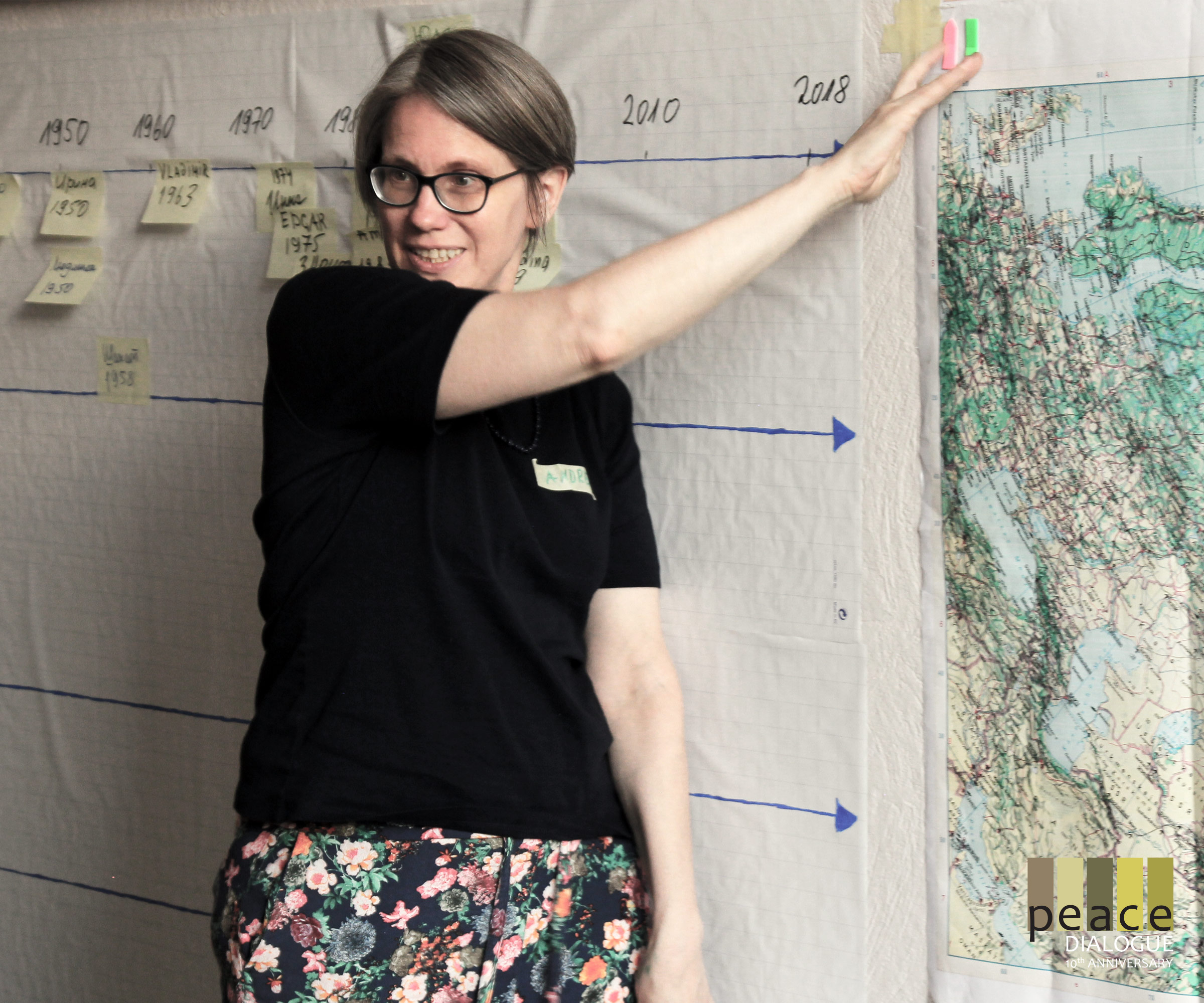
DR. ANDREA ZEMSKOV-ZUEGE, BERLIN/GERMANY
© 2018. PHOTO BY EDGAR KHACHATRYAN, ARMENIA
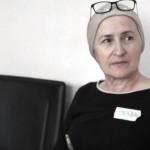 According to official numbers, more than 496,000 people were forcibly evicted from Chechnya and Ingushetia by Stalin’s regime in 1944. The official documents state that 411,000 people were sent to Kazakhstan and 86,000 to Kyrgyzstan. Other sources put the number much higher, at over 650,000. Chechen historians claim that about 400,000 people died during the deportation.
According to official numbers, more than 496,000 people were forcibly evicted from Chechnya and Ingushetia by Stalin’s regime in 1944. The official documents state that 411,000 people were sent to Kazakhstan and 86,000 to Kyrgyzstan. Other sources put the number much higher, at over 650,000. Chechen historians claim that about 400,000 people died during the deportation.
“People were put in cattle wagons, which would stop on the way only to let people relieve themselves” – tells Hava Mahmudova, remembering the stories her mother told her about the deportation of her family to Kazakhstan. – “During the stops, soldiers demanded that the bodies of the dead were unloaded. People were hiding them, so they could bury them according to the Chechen traditions. Still, many bodies were disposed of in the fields.”
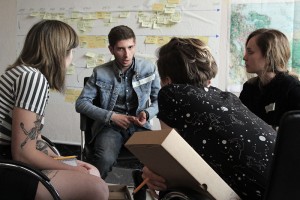 Along with other civil society representatives from Chechnya and Ingushetia, Hava was one of the participants of the workshop “Dialogue across history and memories” that was held in Tbilisi from May 16 to 21, 2018 in the framework of the project “ARENA: Community Theatre and Public Art”.
Along with other civil society representatives from Chechnya and Ingushetia, Hava was one of the participants of the workshop “Dialogue across history and memories” that was held in Tbilisi from May 16 to 21, 2018 in the framework of the project “ARENA: Community Theatre and Public Art”.
The members of the ARENA international network, who are based in Chechnya, suggested the organization of this event as part of their strategy. Members of the Grozny-based NGO SINTEM, developed this strategy in 2017 during the Summer School for Creative Strategizing organized in the framework of the ARENA project at the Austrian Study Centre for Peace and Conflict Resolution (ASPR) in Stadtschlaining, Austria.
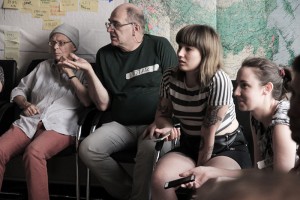 Many modern studies, striving to understand the role of historical memorialization in identity building processes, reflect on the role of collective memory as linking element between individual memories and official history. One of its functions is to inform the present generation about their “responsibilities” emanating from past events.
Many modern studies, striving to understand the role of historical memorialization in identity building processes, reflect on the role of collective memory as linking element between individual memories and official history. One of its functions is to inform the present generation about their “responsibilities” emanating from past events.
Thus, the strategy of the Chechen group was aimed at enhancing young people’s capacities in critically reviewing their perception on the collective memory formation processes, creating a dialogue with their peers from other countries on history and collective memory of the past, acceptance of the diversity of narratives and engaging youth into local peacebuilding initiatives.
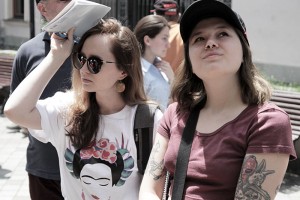 While planning the workshop, the organizers from SINTEM decided to invite representatives of different generations and professional backgrounds: students, history teachers, representatives of NGOs, etc, for the participation in this event. In total 28 people from Chechnya, Ingushetia as well as interested representatives of the ARENA network from Ukraine, Russia, Georgia, Azerbaijan and Armenia took part in the workshop.
While planning the workshop, the organizers from SINTEM decided to invite representatives of different generations and professional backgrounds: students, history teachers, representatives of NGOs, etc, for the participation in this event. In total 28 people from Chechnya, Ingushetia as well as interested representatives of the ARENA network from Ukraine, Russia, Georgia, Azerbaijan and Armenia took part in the workshop.
With the facilitation of the trainers from Germany Andrea Zemskov-Zuege and Marina Grasse, during this six-day event, the participants have acquired knowledge about the links between historical narratives, traumatization and dynamics of violent conflicts. They have trained to listen to different perspectives on historical events and reflected on how and in what form the memories of the past are transmitted from one generation to another.
From ancient times, societies have been preserving the collective memory through memorials and monuments. Memorials often employ a common architectural language and a set of political and ethical claims. In order to make the messages of memorials and monuments more visible for the participants, the organizers also initiated a guided tour to memorials in Tbilisi.
“It is possible to initiate dialogue about the content of collective memories even in case, when on all sides of the conflict divide, the world seems divided into “black” and “white”, into “ours” and “theirs”.” – said one of facilitators of the workshop Dr. Andrea Zemskov-Zuege. – “However, the key precondition to start a dialogue on these topics is to establish a safe atmosphere and equal conditions for different memories to come up. The participants must train to put aside their judgement and learn to really listen to each other.”
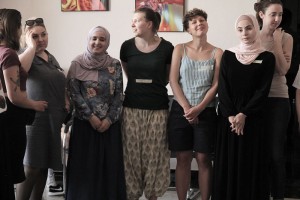 It was an innovative feature of the workshop, that it combined the work with history and memories with another methodology called Documentary Theater. Documentary theatre is a form of theatre that uses pre-existing documentary material (such as newspapers, reports and interviews) as source for stories about real events and real people.
It was an innovative feature of the workshop, that it combined the work with history and memories with another methodology called Documentary Theater. Documentary theatre is a form of theatre that uses pre-existing documentary material (such as newspapers, reports and interviews) as source for stories about real events and real people.
Two of the ARENA network members from Saint Petersburg Natasha Borenko and Maria Kolosova were involved as facilitators of the Documentary Theatre sessions. According to organizers, the theater and other artistic means could be some of the best means for different voices of memories on historical events to be heard by the larger public.
See more photos at Peace Dialogue’s Facebook page
© 2018. “ARENA: Community Theatre and Public Art” is a project of Peace Dialogue NGO (Armenia).
 The Project’s German Partner – OWEN – Mobile Akademie für Geschlechterdemokratie und Friedensförderung e.V.
The Project’s German Partner – OWEN – Mobile Akademie für Geschlechterdemokratie und Friedensförderung e.V.
The Project’s partner in Chechen Republic – SINTEM NGO

The project “Arena: Community Theatre and Public Art” is supported by the zivik (Civil Conflict Resolution) programme of the Institute for Foreign Cultural Relations (ifa) with means from the German Federal Foreign Office.
